Vidya Academy of Science & Technology Technical Campus
(A unit of Vidya International Charitable Trust)
Update your browser to view this website correctly.
(A unit of Vidya International Charitable Trust)

914702649574
914702649234
hodece.vasttc@vidyatcklmr.ac.in
The aim of the department is to help the students develop the ability and mental precision necessary to analyze, interpret and disseminate knowledge to be creative in ECE. The department has highly qualified and dedicated staff committed towards teaching, research and development. Besides all, the department of ECE has well equipped laboratories with updated facilities. Besides providing strong fundamentals in basic Sciences and Engineering subjects, greater emphasis is made to enable our students to acquaint with rapidly evolving technologies like VLSI and Embedded Systems, Analog and Digital Signal Processing, Microwave and Mobile Communications etc.
The professional body, ISTE of the department, imparts latest knowledge to students by making them participate in different events. The Faculty of ECE follows outcome based education model, to ensure the best results with expected outcome. The department always aims for a consistency in quality improvement by taking feedback from students, parents, alumni, iindustries and professional bodies.
Department Vision
Emerge as a centre of quality education and research in Electronics and Communication Engineering for the welfare of the society.
Department Missions
M1: To develop a teaching process which equip the students with the required technical skill and competencies to meet the challenges in the field of Electronics and Communication Engineering
M2: To provide an intellectually inspiring environment for innovation and creativity
M3: To inculcate professionalism, values and ethics for the welfare of the society
Programme Objectives (POs)
Engineering knowledge: Apply the knowledge of mathematics, science, engineering fundamentals, and an engineering specialization to the solution of complex engineering problems.
Problem analysis: Identify, formulate, review research literature, and analyze complex engineering problems reaching substantiated conclusions using first principles of mathematics, natural sciences, and engineering sciences.
Design/development of solutions: Design solutions for complex engineering problems and design system components or processes that meet the specified needs with appropriate consideration for the public health and safety, and the cultural, societal, and environmental considerations.
Conduct investigations of complex problems: Use research-based knowledge and research methods including design of experiments, analysis and interpretation of data, and synthesis of the information to provide valid conclusions.
Modern tool usage: Create, select, and apply appropriate techniques, resources, and modern engineering and IT tools including prediction and modeling to complex engineering activities with an understanding of the limitations.
The engineer and society: Apply reasoning informed by the contextual knowledge to assess societal, health, safety, legal and cultural issues and the consequent responsibilities relevant to the professional engineering practice.
Environment and sustainability: Understand the impact of the professional engineering solutions in societal and environmental contexts, and demonstrate the knowledge of, and need for sustainable development.
Ethics: Apply ethical principles and commit to professional ethics and responsibilities and norms of the engineering practice.
Individual and team work: Function effectively as an individual, and as a member or leader in diverse teams, and in multidisciplinary settings.
Communication: Communicate effectively on complex engineering activities with the engineering community and with society at large, such as, being able to comprehend and write effective reports and design documentation, make effective presentations, and give and receive clear instructions.
Project management and finance: Demonstrate knowledge and understanding of the engineering and management principles and apply these to one’s own work, as a member and leader in a team, to manage projects and in multidisciplinary environments.
Life-long learning: Recognize the need for, and have the preparation and ability to engage in independent and life-long learning in the broadest context of technological change.
Programme Educational Objectives (PEOs) of the Department
PEO1: Graduates with solid foundation in Electronics and Communication Engineering with good competency.
PEO2: Adapt to rapid changes in tools and technology with an understanding of societal and ecological issues relevant to professional engineering practice through life-long learning.
PEO3: Possess leadership qualities and be effective communicators to work efficiently with diverse teams, promote and practice appropriate ethical practices.
PEO4: Involve in career enhancement and adapt to changing multidisciplinary professional and social needs.
PEO5: Run an organization successfully with good social responsibility as an entrepreneur, making use of the knowledge and skills acquired from the programme.
Programme Specific Objectives (PSOs) of the Department
PSO1: Create an ability to understand the theoretical concepts in Electronics and Communication Engineering and apply them in design, fabrication and testing areas like Electronics, Communications, Signal Processing, VLSI, Embedded systems and in future enhancements in this area.
PSO2: An ability to solve complex Electronics and communication Engineering problems, using latest hardware and software tools, along with analytical and managerial skills to arrive appropriate solutions, either independently or in team.
Will be updated soon
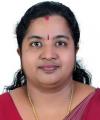
jayarenjini.n@vidyatcklmr.ac.in
Ext : 124
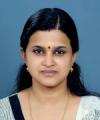
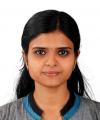
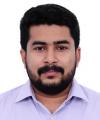
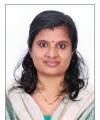
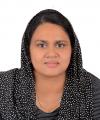

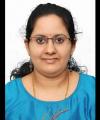
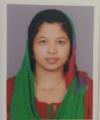
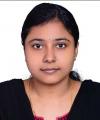
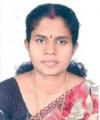
anithakumari@vidyatcklmr.ac.in
Ext : 124

GENERAL LABORATORY SAFETY RULES
LABORATORIES AND OTHER FACILITIES
As per the KTU syllabus, laboratory education is an important part of the engineering curriculums. Department of ECE has six laboratories which represent to the curriculums for different semesters. With the rapidly changing technological trends in the field, the department constantly modernizes its infrastructure facilities to keep abreast. At present, the Department of Electronics and Communications Engineering constitutes of following labs:
1. Electronic Circuits Lab
2. Electronics Workshop
3. Digital Lab
4. Digitial Signal Processing and Microcontroller Lab
5. Microwave Lab
6. Computer Lab
ELECTRONICS CIRCUITS LAB
ELECTRONICS WORKSHOP
DIGITAL LAB
DIGITAL SIGNAL PROCESSING AND MICROCONTROLLER LAB
MICROWAVE LAB
COMPUTER LAB
Activities for the month of January 2026
FACULTY DEVELOPMENT PROGRAMME
Ms. Anjana N, Assistant Professor in the Department of Electronics and Communication Engineering at Vidya Academy of Science and Technology Technical Campus, participated in a five-day National Level Online Faculty Development Programme (FDP) titled “AI in Education: Teaching, Learning and Assessment”. The programme was organized by the Department of Computer Science, Mount Zion College of Engineering, and was conducted from 5th January 2026 to 9th January 2026.
PATENT ACHIEVEMENT
Dr. Jayarenjini N, Professor and Head of the Department of Electronics and Communication Engineering at Vidya Academy of Science and Technology, has secured a UK Design Patent from the United Kingdom Intellectual Property Office, marking a significant research achievement. The patented work, titled “5G Base Station Antenna with Optimized Panel Structure,” has been officially registered and recognizes innovation in the field of telecommunications and wireless communication equipment. The design focuses on advancements in 5G base station antenna technology by introducing an optimized panel structure to enhance performance and operational efficiency.
Activities for the month of December 2025
FDP Completed
Ms. Anjana N, Ms. Lekshmy S, Ms. devika K P, Ms. Shyna Nazar, Ms. Aswini Dutt, Ms, Bhagya Suresh L S completed a 6 Day FDP on Exploring Opportunities of AI in Vlsi Systems organized by IEEE Kerala Section, LBS College of Engineering Kasaragod from 2 Dec 2025 to 7 Dec 2025
MoU Signed with BSNL
The Department of Electronics and Communication Engineering, Vidya Academy of Science and Technology Technical Campus, Killimanoor,TVM, has signed an MoU with BSNL's RTTC Thiruvananthapuram! Represented by Dr. Pravin Rose T, Placement Manager and Mr. Chandu C B, Department Co-ordinator which marks a significant milestone in fostering academic-industry synergy , empowering students with industry-relevant skills and expertise in telecommunications . A step towards innovative education!
Activities for the month of November 2025
AICTE ATAL FDP ON NEXT GENERATION SEMICONDUCTOR
TECHNOLOGIES
Seven faculty members from the Department of Electronics and Communication Engineering of the Vidya Academy of Science and Technology Technical Campus (VAST TC), Kilimanoor, successfully participated and completed a seven-day Faculty Development Programme (FDP) conducted from 21 st October 2025 to 1 st November 2025 ,titled “Next Generation Semiconductor Technologies.” The FDP was organized by the Department of Electronics and Communication Engineering, Vimal Jyothi Engineering College, Chemperi, on behalf of AICTE Training and Learning (ATAL) Academy.
The faculty members who participated in the programme are:
Ms.Shyna Nazar (Assistant Professor, ECE), Ms.Devika K. P (Assistant Professor, ECE), Ms.Lekshmy S (Assistant Professor, ECE), Ms.Apsana S (Assistant Professor, ECE), Ms.Anjana N (Assistant Professor, ECE), Ms.Bhagya Suresh L. S (Assistant Professor, ECE), Ms.Aswini Dutt (Assistant Professor, ECE).
The FDP offered valuable insights into emerging trends, materials, and design innovations in semiconductor technology, enhancing the participants’ technical knowledge and pedagogical expertise in this rapidly advancing field.
FACULTY DEVELOPMENT PROGRAMME
Seven faculty members from the Department of Electronics and Communication Engineering of the Vidya Academy of Science and Technology Technical Campus (VAST TC), Kilimanoor, successfully participated in and completed a six-day Faculty Development Programme (FDP) conducted from 3 rd November 2025 to 8 th November 2025, titled “Expanding Horizons: AI in Technology Applications”. The FDP was organized by the Department of Electronics and Communication Engineering, Bishop Jerome Institute, Kollam.
The faculty members who took part in the programme were:
1. Ms.Sreejitha S. G (Assistant Professor, ECE)
2. Ms.Shyna Nazar (Assistant Professor, ECE)
3. Ms.Devika K. P (Assistant Professor, ECE)
4. Ms.Lekshmy S (Assistant Professor, ECE)
5. Ms.Apsana S (Assistant Professor, ECE)
6. Ms.Anjana N (Assistant Professor, ECE)
7. Mr.Chandu C. B (Assistant Professor, ECE)
Activities for the month of October 2025
WORKSHOP ON CST MICROWAVE STUDIO
Department of Electronics and Communication Engineering, Vidya Academy of Science and Technology Technical Campus Kilimanoor in association with ELECTA organised a workshop on CST Microwave Studio for the 2022-26 Batch ECE students on 4 October 2025 at SB 716, ECE Computer Lab. The session was handled by Mr. Sreekuttan S, Junior Software Engineer, Assuretech Business Solution, 2020-24 Batch Alumni. The session started with a brief introduction by Ms. Anjana N, Assistant Professor, ECE.mThe workshop covered the basic design steps on Microstrip Patch Antenna in the CSTmSoftware. Sample designs were also done. 33 students participated in the workshop.
Activities for the month of September 2025
IEEE Summit 2025
45 students from the ECE department, accompanied by staff members Ms.Lekshmy S, Mr.Chandu C B and Ms.Shyna Nazar, attended the IEEE Young Engineers' Summit (YESS) 2025 at NIT Calicut on September 20, 2025. This event is a significant gathering of engineering students, with over 6,000 participants from more than 100 colleges expected to attend.
Activities for the month of August 2025
MoU Signing with PACE Lab
VAST TC is proud to announce the signing of a Memorandum of Understanding (MOU) with PACE Lab, research and development in programming Languages, architecture, and compilers.
Activities for the month of July 2025
INTERNATIONAL CONFERNECE ON INTELLIGENT SYSTEMS AND TECHNOLOGIES (ICIST) 2025
Department of Electronics and Communication Engineering, Vidya Academy of Science and Technology Technical Campus Kilimanoor organized Second International Conference on Intelligent Systems and Technologies (ICIST’25) on 18 & 19 July 2025. Dr. Jayarenjini. N, HoD Department of Electronics and Communication Engineering was the Convenor & Ms. Sreejitha S.G and Mr. Chandu C. B (Assistant Professor, department of ECE) were the staff coordinators of the conference. ICIST 2025 emerged as a dynamic platform for intellectual exchange, uniting scholars, educators, and students in the exploration of intelligent systems. Held at VAST TC, Kilimanoor in hybrid mode, the event featured diverse technical sessions highlighting innovations in Embedded Systems, Signal Processing, AI, and Communication Engineering. This year’s theme emphasized sustainable technology and smart solutions for healthcare, energy, and automation, bridging research with practical impact. Workshops and paper presentations fostered collaborative learning, encouraging interdisciplinary perspectives and
industry-academic synergy. ICIST 2025 reaffirmed its commitment to nurturing future-ready engineers through mentorship, exposure to advanced tools, and hands-on discussions. The conference echoed its vision: to inspire transformative innovation across sectors through the power of intelligent systems.
Key Note Speakers
1. Dr. D Anto Sahayadas, Director at Symbiosis Skills and Professional University, Pune.
2. Ms. Lineeta Job, Configuration Management Coach/Expert at ZF Group in
Friedrichshafen, Germany.
The Keynote Speakers addressed the gathering on either days of the Conference. The session was very interesting and informative. Students asked doubts regarding the topics in addition, were very happy to interact with the eminent speakers.
IEEE SENSORS COUNCIL MYOSA 3.0
A team of four students from S7 ECE (2022-26 Batch) of Electronics and Communication Engineering (ECE) department has achieved a notable distinction by being selected among the top 10 finalists in the prestigious MYOSA 3.0 competition, organized by the IEEE Sensors Council. The competition received over 1000 global entries, making the achievement even more remarkable.
The students who made it to the top 10 are Mr.Aswin Krishna M S, Mr.Abhiram A S, Mr.Manu V, and Mr.Tinu Joy. Their selection is a testament to their technical prowess, creativity, and teamwork. The IEEE Sensors Council MYOSA 3.0 competition is a highly regarded event that recognizes innovative projects and ideas in the field of sensors and related technologies.
Alumni Talk
The Department of Electronics and Communication Engineering organized an alumni Talk in association with ELECTA and AVAK on 25 July 2025. Mr Rahul Raj R 2015-19 batch Alumni currently working as Senior Software Developer at Allianz Technologies interacted with the students. The session was very interactive and he shared his experience as a student at VAST TC and his journey in life. Ms. Anjana N (AP ECE) coordinated the event.
IEEE Enthalpy Programme
Our Students named Subi O Kuttan, Ardra V and Adish Suresh Babu (2022-26 Batch ECE) participated in the IEEE Enthalpy program organized by the IEEE Kerala Section. The event aimed to empower student leaders and encourage active participation in IEEE activities. The session sparked interactive discussions, motivating the students to explore the full potential of their involvement in IEEE and contribute effectively to their student branch. This experience is expected to enhance their leadership skills and professional growth.
Research Paper Published
Ms.Sreejitha S G (AP, ECE ) and Mr.Chandu CB (AP, ECE) have successfully published an International journal paper titled "A Review: FFT Based Multicarrier Systems" in the International Journal of Research and Analytical Reviews (IJRAR).
Session on Memebership Development and Execom Duties - IEEE
Ms.Lekshmy S, Assistant Professor in the Department of Electronics and Communication Engineering and the VSAC (Volunteer Student Activity Coordinator) of the IEEE Travancore Hub, delivered an engaging and informative session as part of the program ENTHALPY. The session, titled “Membership Development and Execom Duties,” was attended by students from various engineering colleges across the state. Ms.Lekshmy shared valuable insights on the importance of IEEE membership, the opportunities it offers for personal and professional growth, and the key responsibilities of Executive Committee (Execom) members within student branches. Organized by the IEEE Kerala Section, the event aimed to motivate and empower student leaders to take active roles in IEEE activities and to contribute effectively to their respective student branches. The session was well-received, sparking interactive discussions and encouraging students to explore the full potential of their involvement in IEEE.
Faculty Development Programme
Ms.Sreejitha S.G. (AP, ECE) successfully participated in and completed a five-day Faculty Development Program on “Artificial Intelligence & Data Science: A Hands-On Orientation,” organized by the Department of Computer Science and Engineering, TKM IT, from 23/06/2025 to 27/06/2025.
Activities for the month of June 2025
CREOVATE2
The Electronics and Communication Engineering Department at Vidya Academy of Science and Technology, Technical Campus, Kilimanoor, in association with IEEE VAST TC and ELECTA, organized CREOVATE-2 2025 on June 2, 2025. The event was specially curated for Higher Secondary School students, offering a dynamic day of innovation, exploration, and enjoyment. The program featured practical workshops on PCB design led by ECE alumni, innovative technical challenges, and interactive sessions introducing emerging technologies. CREOVATE-2 served as an exciting platform to spark curiosity and enthusiasm among young learners, immersing them in the vibrant world of modern technology.
Faculty Development Programme
Ms.Sreejitha S G (AP, ECE) successfully participated & completed 5 days faculty development program on “AI & ML Foundations: from Mathematics to Data Science” organized by Department of Computer science and engineering, IES College of Engineering, Chittilappilly, from 17/06/2025 to 21/06/2025.
Activities for the month of May 2025
Timeless Bonds- Alumni Reunion
The Department of Electronics and Communication Engineering at VAST TC, together with the Association of Vidya Alumni Kilimanoor (AVAK), organized an Alumni Reunion on May 17, 2025. Ms.Anjana N, Vice President of AVAK and Assistant Professor in the Department of ECE, welcomed the gathering. Dr.Jayarenjini N, Head of the Department, presided over the event. Brig.K.S.Shaji, Director of VAST TC, delivered the keynote address.
Students shared their experiences during the event and reminisced about their college days. They also emphasized the importance of such reunions, as they help foster a sense of togetherness among upcoming batches. Ms. Anjana N gave a brief introduction to the Al machines Alumni portal to the attendees. As part of the Green Campus initiative, two trees were planted on the college campus. A total of 15 students from various batches attended the reunion.
Activities for the month of April 2025
CREOVATE1
The Department of Electronics and Communcation Engineering Department at Vidya Academy of Science and Technology, Technical Campus, Kilimanoor, in collaboration with IEEE VAST TC and ELECTA, hosted CREOVATE 2025 on April 16, 2025. The event welcomed Higher Secondary School students for a day filled with innovation, learning, and fun. Highlights included hands-on workshops, creative tech challenges, an exciting gaming arena, and interactive sessions with experts. Designed to inspire and engage young minds, CREOVATE offered a perfect platform to explore the world of technology in a vibrant and energetic setting.
Faculty Development Programme
Ms.ANJANA N (AP, ECE) of Successfully participated in the 3 Days Faculty Development Program on “LaTeX for Academics: Writing, Research and Beyond” organized by the Department of Electronics and Communication Engineering, NSS College of Engineering Palakkad from 10/04/2025 to 12/04/2025.
Activities for the month of March 2025
Volunteer Leadership Training Programme - IEEE
Volunteer Leadership Training Program, organized by IEEE Kerala Section, was successfully conducted at Aashir Bhavan, Kochi, on March 1 st and 2 nd . This event brought together Student Representatives from all the IEEE Student Branches (SBs) in Kerala for a face-to-face meeting (F2F), alongside a comprehensive volunteer training session. The program aimed at enhancing leadership skills, fostering collaboration, and sharing best practices across various IEEE SBs. Our college had the honour of participating in this enriching event, and we are proud to highlight the following students who represented our institution:
1. Ms.LekshmyS (AP ECE, VASTTC; IEEE SB Councillor, VASTTC; IEEE Trivandrum Hub VSAC)
2. Mr.AswinKrishnaM.S. (S6 ECE Student; Chair of IEEE SB VASTTC)
3. Mr.SonuS (S6 ECE Student; Treasurer of IEEE SB VASTTC)
4. Mr.TinuJoy (S6 ECE Student; Student Representative of IEEE SB VASTTC)
5. Mr.ManuV (S6 ECE Student; Student Representative of IEEE SB VASTTC)
The event provided a unique platform for learning, sharing, and networking with peers from other institutions, as well as valuable insights into leadership roles within IEEE. It was an excellent opportunity for our students to engage in discussions on the future of technology, the role of volunteers, and the importance of community in driving innovation.
Faculty Development Programme
Mr.CHANDU C B (AP, ECE) and Ms.SREEJITHA S G (AP, ECE) successfully participated & completed five days FDP on “Exploring AI Paradigms: ML, DL & Research Perspectives” organized by the Department of Electronics and Communication Engineering, College of Engineering Muttathara, Thiruvananthapuram, from 10/03/2025 to 14/03/2025.
Mr.Chandu C B (AP, ECE) and Ms.Sreeejitha S G (AP, ECE) successfully participated & completed five days Faculty Development Program on “FUTURE TRENDS IN MACHINE LEARNING AND DATA SCIENCE-DRIVEN IOT APPLICATIONS (FTMLDSA-IOT- 2025)” organized by the Department of CSE (Data Science) and Internal Quality Assurance Cell (IQAC), HALDIA INSTITUTE OF TECHNOLOGY, Haldia, in association with the Department of CSE, Dr.Sudhir Chandra SUR INSTITUTE OF TECHNOLOGY & SPORTS COMPLEX, Kolkata and the department of CSE, BUDGE Institute of Technology (BBIT), Kolkata from 10/03/2025 to 13/03/2025 and 17/03/2025.
Mr.CHANDU C.B (AP, ECE) and Ms.SREEJITHA S.G (AP, ECE) successfully participated in the One Week Online Faculty Development Program on Harnessing Virtual Labs For Effective Students Engagement organized by the Department of Mechanical Engineering, Lendi Institute of Engineering and Technology, Vizianagaram Andhra Pradesh, in association with National Institute of Technology Karnataka, Surathkal, from 17/03/25 to 21/03/2025.
Award of PhD Degree
Ms.Soumya Babu H (AP, ECE) has successfully completed her PhD in Electronics and Communication Engineering from Kerala University, marking a major milestone in her academic and professional journey. She has 6 journals and 4 conferences to her credit.
Activities for the month of February 2025
IEEE Kerala Section
Ms. Lekshmy S , AP, ECE has been selected as the VSAC of Travancore Hub in the IEEE Kerala Section Student Activities Committee 2025.
Our IEEE Student Branch was successfully inaugurated on 31/01/2025, graced by the esteemed presence of Prof. Nandan S (Secretary, IEEE Indian Council, IEEE Kerala Section). This marks the beginning of an exciting journey of innovation, collaboration, and technological empowerment. Here's to shaping the future together! The Electronics and communication department of VASTTC, took the initiative of this great beginning.
Activities for the month of January 2025
Faculty Develpoment Programme
Ms. Lekshmy S (AP, ECE), Ms.Apsana S(AP, ECE), Ms.Bhagya suresh L S (AP, ECE) successfully participated & completed five day National Level online Faculty Development programme titled “Generative AI - The Future of Creativity and Automation ” organised by the Department of Computer Science and Engineering in association with CSI and ISTE, Vidya Academy of Science & Technology , Thrissur during 13 - 17 January 2025.
Ms. Lekshmy S and Ms.Apsana S (AP, ECE) successfully participated & completed AICTE Training And Learning (ATAL) Academy Faculty Development Program on “Exploring the Role of Artificial Intelligence in the Evolving Media Landscape and Rural Entrepreneurship” at UNION CHRISTIAN COLLEGE,ALUVA from 20/01/2025 to 25/01/2025.
Activities for the month of December 2024
Faculty Develpoment Programme
Ms. Anjana.N, Ms. Sreejitha S.G, Mr. Chandu C.B and Ms. Aswini Dutt successfully participated & completed AICTE Training And Learning (ATAL) Academy Faculty Development Program on ENERGY, SUSTAINABILITY AND CLIMATE RESILIENCE IN THE MODERN WORLD at VIDYA ACADEMY OF SCIENCE AND TECHNOLOGY TECHNICAL CAMPUS from 02/12/2024 to 07/12/2024.
Ms. Dhanya.S Assistant Professor Department of Electronics and Communication Engineering has successfully participated & completed AICTE Training And Learning (ATAL) Academy Faculty Development Program on 5G and beyond : Research Direction and Opportunities at MAR BASELIOS COLLEGE OF ENGINEERING AND TECHNOLOGY from 02/12/2024 to 07/12/2024.
Ms. Anjana N, Ms. Lekshmy S, Ms.Apsana S, Ms.Aswini DUtt, Ms.Bhagya suresh L S (AP, ECE) successfully participated & completed five days faculty development program on “Challenges and future directions of AI in energy systems” organized by department of electrical and electronics engineering, NCERC,Pampady from 09/12/2024 to 13/12/2024.
Activities for the month of October 2024
MoU to Drive Technological Advancements
A MoU is signed between Enfacto Tech and Vidya Academy of Science and Technology Technical Campus, Kilimanoor regarding the Value Added Program (VAP) for S5 students of ECE department on 18 th of October 2024. The objective of this course was to introduce the fundamental concepts of Machine learning (ML) using Python with an emphasis on practical applications relevant to Electronics and Communication Engineering. The MoU was signed by Dr.T Mathavaraj Ravikumar (Principal, VAST) and Mr Nandan S (CEO Enfacto Tech solution) in the presence of Dr Jayarenjini .N (HoD, ECE Department), Ms Lelkshmy S (CCE Member, ECE Department).
Activities for the month of September 2024
Paper Publication
?Ms. Lekshmy.S, Assistant Professor, Department of Electronics and Communication Engineering published a paper in IEEE International Conference on Data Mining Framework for Discovering and Clustering Phenotypes of Atypical Diabetic Lung.
Activities for the month of July 2024
Seminar on Recent Trends and Opportunities in Electronics and Communication Engineering
A Seminar on Recent Trends and Opportunities in Electronics and Communication Engineering was conducted for the ECE aspirants at VAST TC on 5 July 2024. The session started at 9:30 AM with a welcome address by Ms. Sreejitha. S. G, (Assistant Professor) Dept of ECE. Dr. Jayarenjini. N HoD, ECE addressed the students and parents who gathered.
The Keynote speakers of the day were Ms. Anjana. N Assistant Professor ECE and Ms. Divya Janardanan, Junior software engineer at Kerala University of Digital Sciences, Innovation and Technology, 2017-21 Batch Alumni, Department of ECE VAST TC. Students were given an awareness on the recent trends and developments in the world of Electronics and Communication Engineering. Ms. Divya shared her experience as a student of VAST TC and her journey towards success. The students and parents raised concerns about the academics and the job opportunities in the current world. They were addressed well too.
Activities for the month of March 2024
ALUMNI TALK
Ms. Diya u pradeep, Data Processing Assistant, IQAC, IIST,handled session on Intelligence on Microcontrollers on 23 march 2024 for Third Years and Final Year students. Diya is 2014-18 batch alumni of dept of ECE
Activities for the month of November 2023
TECHNICAL TALK ON “INTRODUCTION TO PYTHON
The Department of Electronics and Communication Engineering in association with ELECTA , of Vidya Academy of Science and Technology Technical campus, Kilimanoor organized a technical talk on “Introduction to python” on 09/11/2023 & 10/11/2023 . The resource persons of the event were Ms.Parvathy S.K (Chief Technical Officer, White Track Technologies) and Ms.AromaChandrashekhar (Software Specialist, Networkz Systems Technology Training Company) .The event was co-ordinated by Ms.Aswani S(Asst.Prof-ECE) and Ms.Dhanya S (Asst.Prof-ECE). The students shared their valuable feedback at the end of the session and requested for more such informative sessions in the future.
Activities for the month of May 2023
?INTERNSHIP PROGRAMME ON ARDUINO AND ITS IOT APPLICATIONS
A five-day Internship Programme on “Arduino and its IOT applications" was held at Vidya Academy of Science & Technology Technical Campus (VAST TC), conducted by the Department of ECE from 29.5.2023 to 2.6.2023. 33 students from ECE department participated in the programme. The Programme aims to provide opportunities to the students to enrich their knowledge in the field of Arduino and its IoT applications. The resource person was Mr. Sreeram from Keltron trivandrum. The co-ordinators of the internship programme were Ms. Krishnaprathibha S. R, Assistant professor, Dept of ECE and Ms. Niraja J Shenoy,Assistant professor, Dept of ECE.The course aims at providing hands on experience in terms ofprogramming among the students for analysis and design of IoT based applications.This program will focus on Arduino Uno to design basic using Tinkercad and IoT based applications design using Blynk.
ADD ON PROGRAM -JAVA SCRIPT
As part of the Centre for Continuing Education, the Department of Electronics and Communication Engineering offered an Add-on Course on JavaScript for S6 ECE students from the 2020-2024 Batch. The Coordinator of the program was Ms. Aswani S. The Resource Persons were Ms.Aroma Chandrasekar & Mr.Ajay V of NETWORKZ SYSTEMS
TECHNICAL TALK ON “RECENT TRENDS IN EMBEDDED SYSTEMS”
The Department of Electronics and Communication Engineering, organized a Technical talk on “Recent Trends in Embedded Systems” on 06th May 2023. The program was organized by Dr. Jayarenjini N (Asso.Prof & HoD-ECE). The resource person of the event was Mr.Neju A N, Technical Head, Quest Innovative Solutions, Cochin. The event was coordinated by Ms.Abha.M L(Asst.Prof-ECE). The Talk started with a welcome speech by Ms Abha.M.L followed by a brief talk by Dr. Jayarenjini N (Asso.Prof & HoD-ECE). Total 40 students of S6 ECE and S8 ECE participated in the talk. Positive responses were received from the students. The event was structured in 2 hour sessions, followed by a Q & A session.
EPISTA 2K23
“EPISTA 2K23”, Tech Fest was conducted by the Department of Electronics and Communication Engineering at VAST TC on 12th May 2023. EPISTA 2K23 was a platform for the students to showcase their talents and skills in the area of their studies. The major events conducted during the technical fest were CIRCUIT DEBUGGING AND CIRCUIT DESIGNING, VR GAMING, WORKSHOP ON CIRCUIT BOARD DESIGNING, PROJECT EXPO, DRONE SHOW, GAMES, TREASURE HUNT
Activities for the month of February 2023
ELECTRONICS PROJECT EXHIBITION
On 11 th February 2023 (Saturday), students and faculty of Electronics and Communication Engineering (ECE) Department, Vidya Academy of Science & Technology, Technical Campus,Kilimanoor participated in the “HORIZON ANNUAL EXHIBITION” organized by BPM CBSE School, Varkala on their school premises. The event was inaugurated by Col. P G Suresh Kumar. The program started at 9:30 am. Students presented prototypes of different working models which were related to different applications like Solar Robots, AAC Device, Spider Robot, Robotic Arm etc.The event was Coordinated by Ms. Niraja J Shenoy, Assistant Professor, ECE and Ms. Krishna Prathiba S R, Assistant Professor, ECE. Fourteen students from final year Electronics andCommunication Engineering Department along with four Faculty members (Ms. Aswani S, Ms. Abha M L, Ms. Devi Krishna B and Mr. Arish) and the Coordinator, Mr. Suraj S, Assistant Professor, CSE were present there.Students from every class visited our stall and the exhibition was open to students from other schools as well. The school Principal surveyed the entire exhibition and also took details from the Respective Students about each of their models. Simultaneously, the people at the exhibition also thoroughly enjoyed the event.
Activities for the month of October 2022
ALUMNI TALK FOR 1 st YEAR ECE STUDENTS
The Department of Electronics and Communication Engineering organized an ALUMNI TALK on 2 nd October 2022 from 11 AM to 12 noon in Google Meet. The event was for the 2022 admitted students in the Electronics and Communication Engineering Department. It was coordinated by Ms. Anjana N and Ms. Meenu S Nair, Assistant Professors in ECE. The speakers of the event were Mr. Rahul Raj R (2015-2019 Batch ECE) and Ms. Divyamol M J (2017-2021 Batch ECE) students who got placements in Allianz Technology and Ecesis Technologies respectively.
Activities for the month of September 2022
MoU SIGNED
Vidya Academy of Science and Technology and Networkz systems Trivandrum signed MoU on 29 th July 2022 for their association in providing training in JAVASCRIPT and placement assistance.
Activities for the month of August 2022
1.SESSION ON SEMICONDUCTORS: SHAPING DAY TO DAY LIFE
The Department of Electronics and Communication Engineering conducted the online webinaron “Semiconductors: Shaping Day to Day Life”for the newly joined batch (2022-2026) Electronics students. Ms. Sreejitha S G, and Ms. Niraja J. Shenoy (Asst.Prof-E CE) coordinated the program under the guidance of Head of the Department, Dr. Neethu Raj R..The session started with an introduction by Ms. Niraja J. Shenoy (Asst.Prof- ECE). Brig (Rtd.) K.S. Shaji Director, VAST TC, introduced the resource person.Dr. Sandeep Saseendran, Semiconductor Technologist at IMEC, Belgium delivered the lecture.
Activities for the month of July 2022
1.AAC DEVICE - NISH
The AAC Device developed by the Department of Electronics and Communication Engineering for Entry level AAC Device Development Challenge organised by CATI-NISH and APJ AKTU is selected as the FINALIST (top 3 selected from the last level of top 5). Hon. Minister for Higher Education & Social Justice - Dr. R. Bindu inaugurated the function at NISH at 10 AM, on 25/07/2022 and awarded the certificate.
Activities for the month of June 2022
1.SESSION ON “RESUME PREPARATION
A session on ‘Resume Writing’ was conducted on the 24th May 2022 at the ME Seminar Hall by the Department of Electronics and Communication Engineering. The Workshop received a good response from the students. The Resource person for the workshop was Mr. Chandu C B, Assistant Professor, Department of ECE. The seminar was attended by 41 students from the final and pre-final year of the Department of ECE.
Activities for the month of May 2022
1.TECHTRONIX
“TECHTRONIX”, Tech Fest was conducted by the Department of Electronics And Communication Engineering at VAST TC on 7th May 2022. TECHTRONIX was a platform for the students to showcase their talents and skills in the area of their studies.Listed below are the major events conducted during the technical fest.
Activities for the month of April 2022
1.ALUMNI TALK SESSION
The Department of Electronics and Communication Engineering organized an alumni talk on 25 th April ,2022 for the benefit of students as to how to prepare for placement drives. The session was conducted from 2pm to 3pm at SB 812 Civil Seminar hall. The Event was organized for pre-final and final years of ECE. The key speakers of the session were Mr. Vignesh A, Senior engineer in Tata Elxsi and Mr. Harikrishnan R S, Software engineer in E Y. They were the alumni from the batch 2013-2017 of ECE.The alumni talk was coordinated by Ms. Niraja J. Shenoy(Asst. Prof- ECE).
Activities for the month of February 2022
1.PRODUCT DEVELOPMENT - AAC DEVICE
Vidya Academy of Science and Technology Technical Campus Kilimanoor is one among the finalist 5 colleges enlisted by NISH for the (Augmentative Assistive Communication) device project being facilitated by KTU.
Team Members:
? Ms. Sreejitha S. G AP, ECE (PoC)
? Mr. Dawn Sivan AP, ECE
? Ms. Aswathi V Nair AP, ECE
? Mr. Chandramohan.B (TI, ECE)
? Mr. Briju V. G (TI, ECE)
? Ms. AnithaKumari S.B (TI, ECE)
Activities for the month of December 2021
1.ELECTA
Fresher’s party with the theme ‘INCEPTO ELECTRONICA’ was organized on 13 th December, 2021. The programme was organized by fourth year students of ECE department. The programme started at 3.00 PM as per the schedule. Programme coordinators Ms. Fathima Nazeer(S7ECE) and Mr. Sanjay.S (S7ECE) gave a warm welcome to all. The programme started with the welcome speech of Dr Neethu Raj R, (HOD- ECE) followed by the felicitation of advisory staff of first year ECE Department, advisory staff of fourth year ECE Department and all other teaching and non-teaching staff of ECE Department.
Activities for the month of November 2021
1.WEBINAR ON “INTRODUCTION TO EXCEL”
A webinar on Introduction to Excel was conducted on 5 th November 2021 from 2 PM to 3 PM in Google Meet. The event was for the 2021 admitted students in the Electronics and Communication Engineering Branch. It was coordinated by Mr. Dawn Sivan (Asst. Prof ECE). The speaker of the event was Ms. Sreejitha S. G (Asst. Prof- ECE).
Activities for the month of October 2021
1.THE END USER TESTING OF THE AAC DEVICE
The Electronics and Communication Department of VAST TC designed and developed a cost effective Augmentative and Alternative Communication (AAC) device. The device can record and playback three different voice messages each of one-minute duration. The end user testing of the device was successfully conducted by team members, Dr. Neethuraj R (HOD- ECE), Mr. Dawn Sivan (Asst. Prof-ECE) and Mr. Subeeshdev, Student Volunteer from ECE, with the autism affected inmates of Karunyalayam Orphanage, Attingal.
Activities for the month of October 2021
1.CALLIGRAPHY COMPETITION
A calligraphy writing contest was conducted for students on 15 th Oct 2021. Students were asked to write any famous quote or wordings related to the topic KNOWLEDGE. A tutorial on how to write in calligraphy was circulated among the students via whatsapp. September 2021.
2. WEBINAR ON CAREER OPPORTUNITIES IN ELECTRONICS AND COMMUNICATION ENGINEERING
A webinar on Career Opportunities in Electronics and Communication Engineering was conducted on 3rd September 2021 from 2 PM to 3 PM in Google Meet. The event was for the 2021 admitted students in the ECE Branch. It was coordinated by Mr. Dawn Sivan (Asst.Prof- ECE). The speaker of the event was Ms. Anjana N (Asst.Prof- ECE). Dr. Neethuraj R.(HOD-ECE), Ms. Sreejitha S. G. (Asst Prof-ECE) and Ms. Aswathi V. Nair (Asst Prof- ECE) were also present.
3. TALK FOR FIRST YEAR STUDENTS
An ALUMNI TALK was conducted on 9 th September 2021 from 2 PM to 3 PM in Google Meet. The event was for the 2021 admitted students in the Electronics and Communication Engineering Branch. It was coordinated by Ms. Aswathi V Nair (Asst . Prof- ECE). The speaker of the event was 2017-2021 BATCH ECE students who got placement in INFOSYS.
4. KNOWING ARDUINO BETTER
A program on Knowing Arduino Better was conducted on 29 th September 2021 from 2 PM to 3 PM in Google Meet. The event was for the 2021 admitted students in the Electronics and Communication Engineering Branch. It was coordinated by Ms. Niraja J. Shenoy (Asst.Prof- ECE). The speaker of the event was Mr. Dawn Sivan (Asst. Prof- ECE).
Activities for the month of July 2021
1.INSTALLATION OF AUTOMATIC HAND SANITIZER DISPENSER
The department of Electronics and Communication Engineering designed and developed an Automatic Hand Sanitizer Dispenser Machine with the continual effort of Mr. Briju V G (Trade Instructor, ECE) and team. A dispenser unit has been donated to the college and is installed in the lobby for public use.
Activities for the month of June 2021
1. ELECTA LOGO COMPETITION
The Association of the Department of Electronics and Communication Engineering of VAST TC got its new logo on 1st June 2021 at 4 PM in the presence of Dr. Neethuraj R., staff in charges Ms. Anjana N. and Ms. Sreejitha S. G., and all staff and students of the department. The launch was conducted online in Zoom Platform. The logo was designed by Ms. Anjana Biju, a student of S8 ECE.
2. WORKSHOP ON PROGRAMMING IN C FOR ECE STUDENTS
The ELECTA, Association of Electronics and Communication Engineering Department conducted a three-day workshop on “PROGRAMMING IN C LANGUAGE” for all students of VAST TC. Anjana N and Aswathi V Nair, Assistant professors from the department of ECE coordinated the program. There were a total of 115 active participants. Dr. Muhammed Anshad P Y, Assistant Professor in ECE, VAST TC delivered the lectures.
3. WEBINAR ON HOW TO START A STARTUP FOR POLYTECHNIC STUDENTS
The Department of Electronics and Communication conducted a Webinar Topic “How to start a STARTUP” for the Polytechnic students of EC Branch. The event was hosted by the Department of Electronics and Communication, Vidya Academy of Science and Technology Technical Campus, Kilimanoor for all the interested ECE Final year Diploma students to get a better understanding of STARTUP. The resource person for the event was Dr. Muhammed Anshad P. Y., Assistant Professor, Dept. of EC. In the webinar, the speaker explained on how a generated idea can be made into a successful product by various techniques.
4. WEBINAR ON HOW TO DESIGN A POSTER IN MINUTES FOR ECE STUDENTS
ELECTA, Association of Electronics and Communication Engineering Department conducted a webinar on “HOW TO DESIGN A POSTER IN MINUTES”. Dr.Neethu Raj R, HOD, Department of Electronics and Communication Engineering was the convenor of the programme. Ms.Karunya R, Assistant Professor of the Department of ECE coordinated the programme. Mr.Thoufeek Baber, a student of S6 ECE, VAST TC, delivered the lecture. There were a total of 60 active Participants.
5. MARKETING A PRODUCT COMPETITION
The ELECTA, Association of Electronics and Communication Engineering Department conducted a competition “MARKETING A PRODUCT” under ELECTA SERIES I for all students of VAST TC on 11th June 2021 at 4 PM. Mr. Dawn Sivan (AP, ECE) and Ms. Aswathi V Nair (AP, ECE) judged the competition. There were a total of 12 active participants.
6. INTER COLLEGE WEBINAR ON CYBER SECURITY AND ETHICAL HACKING
ELECTA, Association of Electronics and Communication Engineering Department conducted an inter college webinar on “Cyber Security and Ethical Hacking”. Mr. Sreenath Sasikumar, Founder and CEO Mashupstack delivered the lecture. He has been listed in Google Hall of Fame and has been honoured with the position of Deputy Commander with kerala police cyber dome. He presented the keynote on Cybersecurity and Ethical Hacking. He also pointed out the basic concepts of cybersecurity, ethical hacking, the concept of hacking, hacker and types of hackers.
7. ONLINE REELS COMPETITION
ELECTA, Association of Electronics and Communication Engineering Department organized an online reels competition under ELECTA SERIES 1 with the theme “REEL CORONA”. The students were advised to create reels of duration 15 to 20 seconds and the theme should be comedy related to corona. The performance and creativity of students were appreciable.
8. PROJECT ABSTRACT COMPETITION
ELECTA, the Association of Electronics and Communication Engineering Department organized an online Project Abstract Competition under ELECTA SERIES 1. The students were advised to create a project abstraction and the abstraction of registered students submitted through Google form. The selection was done by both judges based on the guidelines, content and creativity of the students.
Activities for the month of May 2021
1. INTER COLLEGE WEBINAR ON MACHINE LEARNING
ELECTA, Association of Electronics and Communication Engineering Department conducted an inter college webinar on “MACHINE LEARNING: CURRENT AND FUTURE TRENDS” on 26th May 2021 at 9.30 AM in Zoom Platform. Dr. Sujith Mangalath, Researcher in the field of Machine Learning, Graph Networks, Risk Assessment and Disaster Management, Georgia, US, delivered the lecture. In this session, the speaker pointed out various aspects in the current technology where machine learning plays a major role like facial recognition, object identification, etc.
Activities for the month of April 2021
1. WEBINAR ON CAREER OPPORTUNITIES IN ELECTRONICS
The department of ECE organized a Webinar on Career Opportunities in Electronics at MGM Polytechnic College, Kilimanoor on 30/04/2021 at 3 PM via Google Meet. The webinar was handled by Ms. Anjana N. (Asst. Prof - ECE) and was coordinated by Ms. Niraja J. Shenoy (Asst. Prof - ECE). The importance and need for higher studies in life as well as the career opportunities that we get with higher education were discussed in the session.
Activities for the month of March 2021
1. HANDS-ON TRAINING ON RASPBERRY PI AND IOT FOR GPTC EZHUKONE
As a part of Vidya Technical Outreach Program Hands-on training on Raspberry PI and IOT was conducted for final year polytechnic students on 8 th March, 2021 and 9th March , 2021 (in two phases) from 10.00 AM to 4.00 PM by the Dept. of ECE. A total of 51 students attended the program. The workshop was conducted in 2 phases by Prof Rajesh G. R., (Asso.Prof-ECE) , Mr. Chandu C. B.(Asst.Prof –ECE), Mr. Chandramohan B, TI Department of ECE and was coordinated by Ms. Niraja J Shenoy (Asst.Prof-ECE).
2. ONLINE WORKSHOP ON ARDUINO FOR GPTC NEYATTINKARA
As a part of Vidya Technical Outreach Program online workshop on ARDUINO was conducted for final year polytechnic students on 12/3/21 from 10.00 AM to 3.00 PM by the Dept. of ECE. A total of 25 students attended the program. The workshop was conducted in 2 phases by Dr. Muhammed Anshad P Y (Asst. Prof-ECE), Mr. Chandramohan B,TI, Department of ECE and coordinated by Ms. Niraja J Shenoy, (Asst. Prof-ECE).
3. HANDS-ON TRAINING ON RASPBERRY PI AND IOT FOR GPTC KAIMANOM
As a part of Vidya Technical Outreach Program, Hands-on training on Raspberry PI and IOT was conducted for final year polytechnic students on 15th March, 2021 and 16th March, 2021 (in two phases) from 10.00 AM to 4.00 PM by the Dept. of ECE. 54 students attended the program. The workshop was conducted in 2 phases by Mr. Chandu C. B (Asst. Prof-ECE), Mr.Chandramohan B (TI-ECE) and coordinated by Ms. Niraja J Shenoy (Asst. Prof-ECE).
Activities for the month of February 2021
1. VAIGA AGRI HACK 2021- ACHIEVEMENT BY S7 ECE STUDENTS
The team of the following students have become the qualifiers of "VAIGA AGRI HACK 2021" Grand Finale organized by Department of Agriculture Development and Farmers' Welfare, Government of Kerala held at St. Thomas College, Thrissur on 11 th to 13 thFebruary 2021. They grabbed their seat among the top five. The concept of their solution to the hackathon problem statement was IOT based smart agricultural and alerting system, designed to help the Agriculture officers and farmers for improving productivity. It helps to perform a soil test, check environmental parameters like temperature, humidity, soil nutrients, PH, rain etc. Also, it is an IoT based monitoring system for precision agriculture applications such as epidemic disease control.Appreciating the team on their achievement.
1. Divyamol N.J, S7 ECE, VAST TC
2. Jithesh Jayakumar, S7 ECE, VAST TC
3. Abhijith V.A, S7 ECE, VAST TC
4. Hareesh Kumar R, S7 ECE, VAST TC.
2. WORKSHOP ON ARDUINO PROGRAMMING FOR POLYTECHNIC STUDENTS
A workshop on Arduino Programming was conducted for the final year Electronics students of Government Polytechnic College, Nedumangad. The session was conducted in two days, one batch a day, on 9 th and 10 th February 2021 from 10 am to 3 pm. It was handled by Mr. Dawn Sivan (Asst.Prof- ECE) and Mr. Chandramohan B. (TI ECE). The session focussed mainly on their final year project. They were given an introduction to Arduino, and were given hands on training on the same. The students did experiments with Arduino and LEDs, PIR sensors, Servo Motors, Ultrasound Sensors and LCD Display. They were encouraged to do further projects under this area, with the knowledge acquired from the session. 14 and 18 students participated on both day sessions. The feedback received from students was good.
3. WEBINAR FOR STUDENTS (2018-22 BATCH ECE)
MAVEN SILICON from Bangalore conducted a webinar for third year students on VLSI. The registration forms were shared to students 3 days prior to the conduction of event. Students logged in to the e-learn platform with their registered email id and default password set. After verification of mobile numbers, the students could login to the e-learn platform. This webinar was a great opportunity to learn VLSI skills from Industry Expert Mr. P R Sivakumar, CEO - Maven Silicon (with 20+ years of experience in Industry & Academia). VLSI is the most sought after job-oriented skills for Electronics and Electrical Engineers in the current industry scenario. Total 27 students from S5 ECE (2018-22 Batch) attended the webinar. Ms. Anjana.N (Asst. Prof –ECE) coordinated the event. E-certificates were given to students.
4. WEBINAR FOR POLY TECHNIC STUDENTS
A Webinar on Career Opportunities in Electronics was conducted for final year students at Central Poly Technic College, Vattiyoorkkavu, Thiruvananthapuram on 24 th February, 2021 by Ms. Anjana.N (Asst.Prof-ECE) from 11AM to 11:45 AM. The session was very interactive and students cleared their doubts too. The session ended at 11:50 AM. Total 37 students attended the session. E-certificates will be provided.The session was organized by Ms.Niraja J Shenoy ( Asst. Prof-ECE).
Activities for the month of January 2021
1. DRAWING COMPETITION AS A PART OF REPUBLIC DAY CELEBRATION
The students of first year students ECE celebrated the 72nd Republic Day by conducting a Drawing Competition. The student coordinators of the programme were Mr. Mohamed Ajmal (Group Tutor: Mr. Dawn Sivan) and Ms. Shifana Nasar (Group Tutor: Ms. Niraja J. Shenoy). The event was conducted online. The theme of drawing Competition was Republic Day. The students participated with complete involvement. Among the entries obtained, the best drawings were selected. The first place was for the drawing by Vanamala. M. The second place was shared by Ms. Sandra Santhosh and Ms. Anamika A. G. The third place was for Mr. Yadu S. M. Mr. Anandu B. and Ms. Aswathy B. Chandran were specially mentioned for their drawings done with great effort.The poster for the event was created by Mr. Muhammad Anvar A. and the introduction video was prepared by Mr. Aromal P. Baiju.
HOD-ECE
Office Phone : 914702649574 , 914702649234
Ext : 124
Email : hodece.vasttc@vidyatcklmr.ac.in
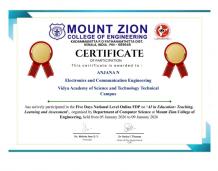
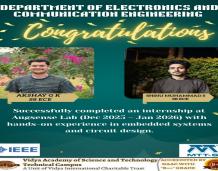
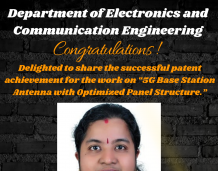
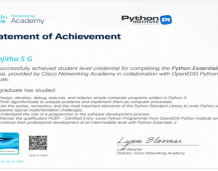
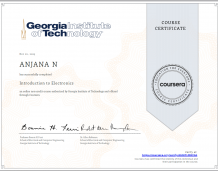
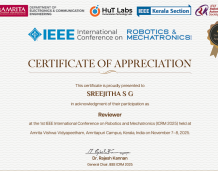
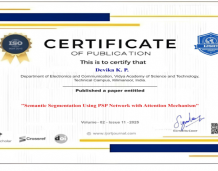
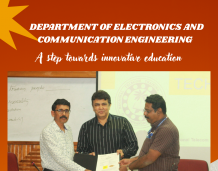
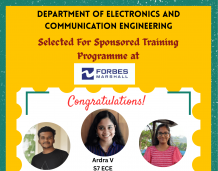
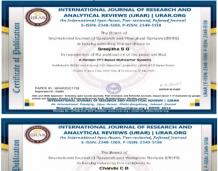
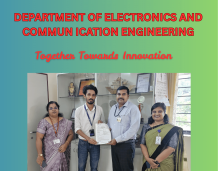
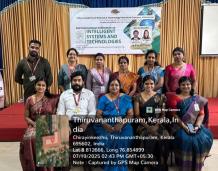
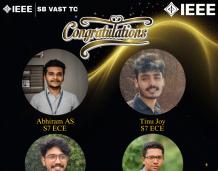
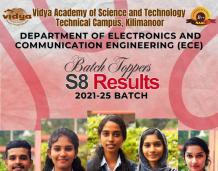
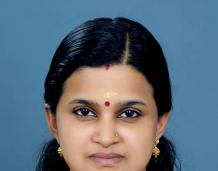
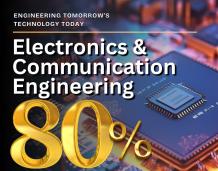
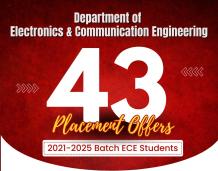

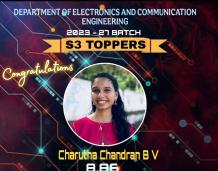
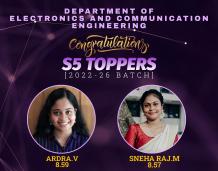
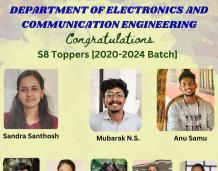
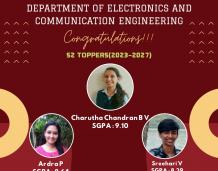
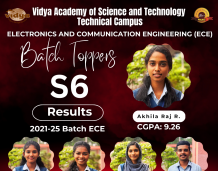
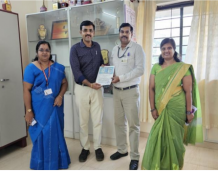
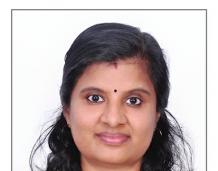
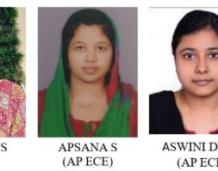
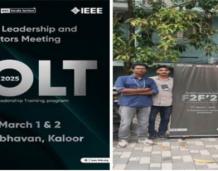
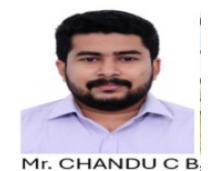
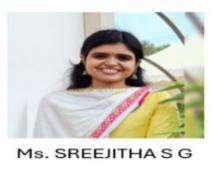
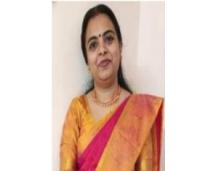
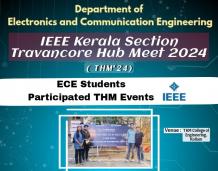
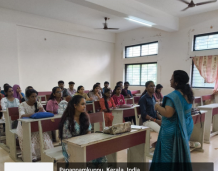
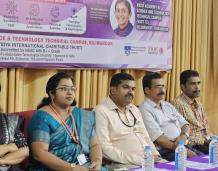
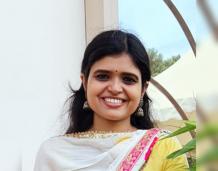
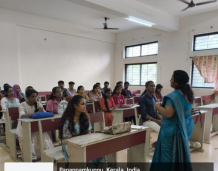
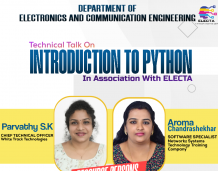
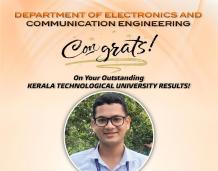
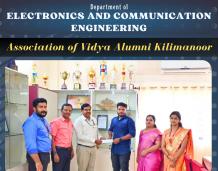
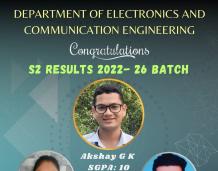
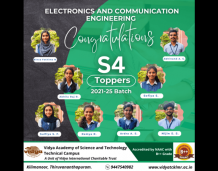
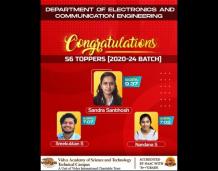
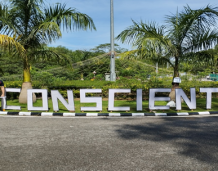
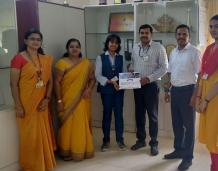
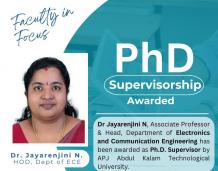
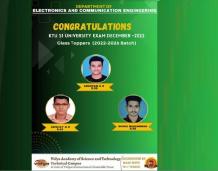
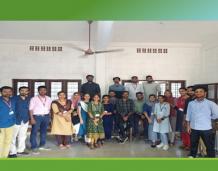
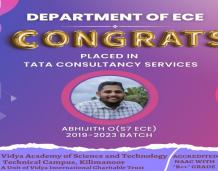
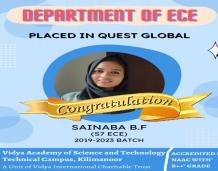
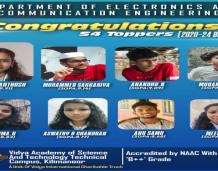
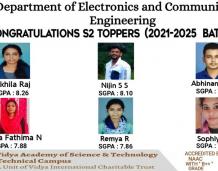
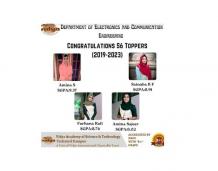

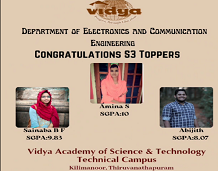
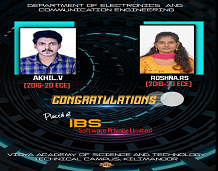
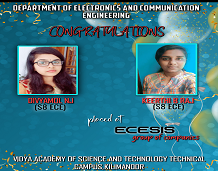
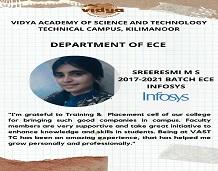
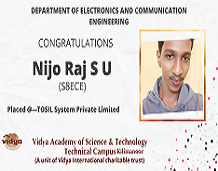
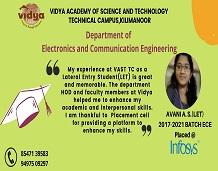
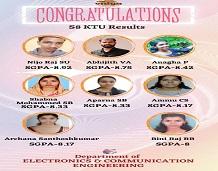
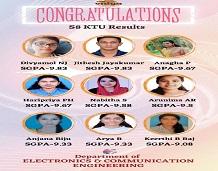
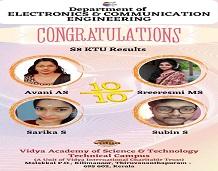
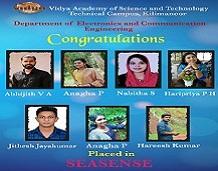
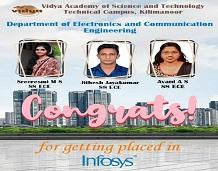
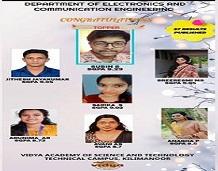
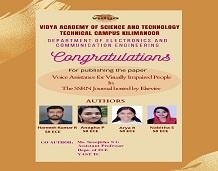
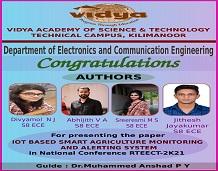
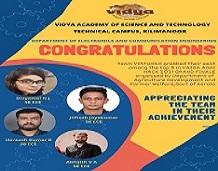
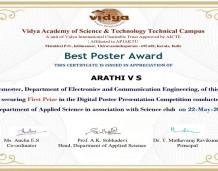
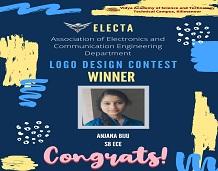
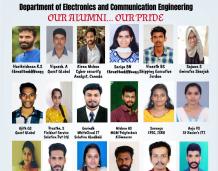
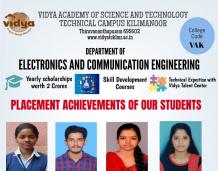
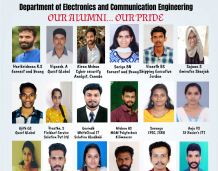
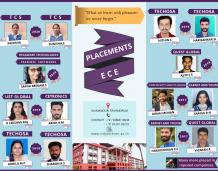
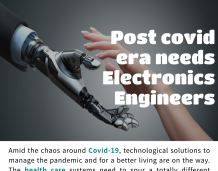
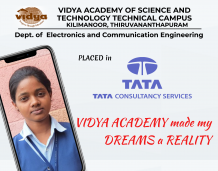

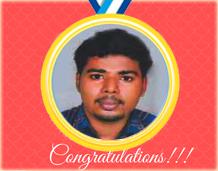
Malakkal P.O, Kilimanoor, Thiruvananthapuram, Kerala- 695 602, India
Phone: +91- 470-2649574, 2649234
Mobile: +91 9447540982
E-Mail: info@vidyatcklmr.ac.in
Affiliated to APJ Abdul Kalam Technological University | Approved by AICTE
Copyright © 2021, www.vidyatcklmr.ac.in. All Rights Reserved.